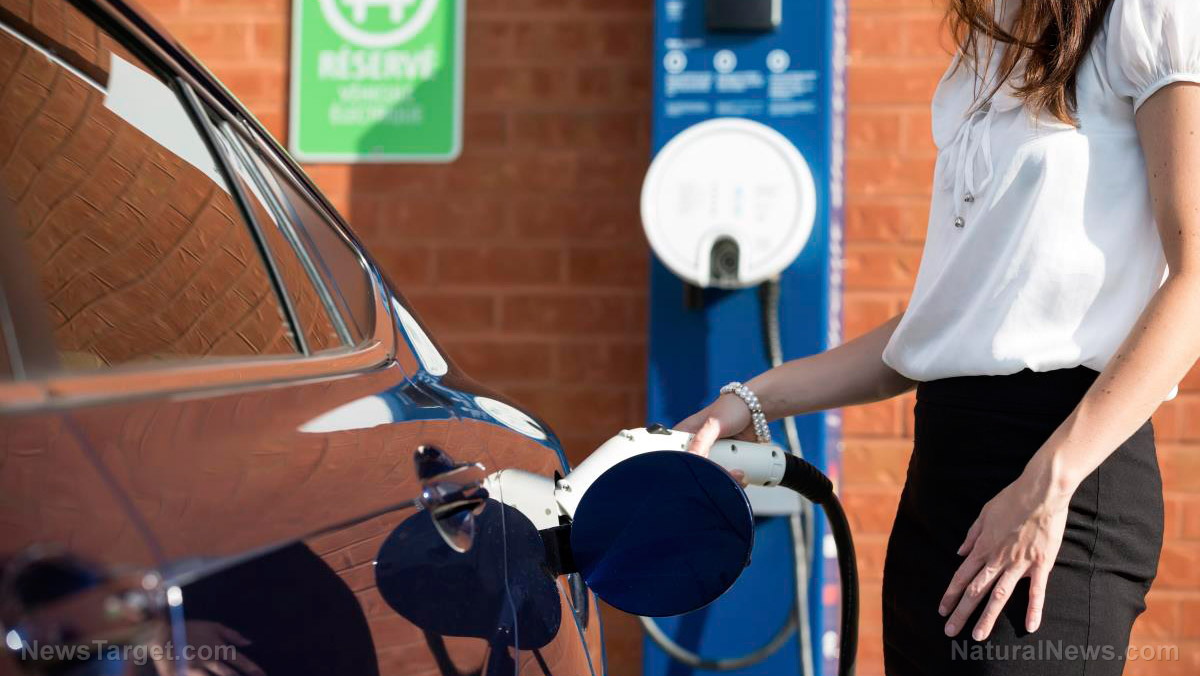Electric vehicles to become more affordable than gas guzzling counterparts in just 7 years: Report
04/28/2018 / By David Williams

Just as the market has begun to turn in favor of renewable energy sources like solar panels and wind farms, electric cars are also starting to gain popularity. Dubbed as environmentally friendly alternatives to conventional gas-powered cars, electric vehicles (EV) are expected to make a big impact in society in the coming years.
Now a new report from Bloomberg New Energy Finance (BNEF) posits that EVs could end up being cheaper than regular cars in no time at all. More specifically, the price of certain electric cars may turn out to be cheaper than their petroleum counterparts after about seven years, at least, which would be the year 2025. That’s dependent on whether or not the cost of lithium-ion batteries continue to drop, which if they do, then EVs will be the ones winning out.
It is said that some EV models will be priced around the same as conventional cars by 2024, at the earliest, and that they would finally become cheaper than them after just one more year. However, the BNEF makes it clear that in order for this to happen, the prices of lithium-ion battery backs would have to keep dropping over the next six or seven years. What’s more, their prices have to keep going down while the demand for metals used in building EVs keeps getting higher.
According to Colin McKerracher, a transport analyst at BNEF, the gradual reduction of prices of EVs will be affected by how the market as a whole responds to them. “Electric vehicle sales will continue to ramp up in the coming years but battery prices still need to decline further for real mass market adoption,” he explained. “If battery material costs keep rising sharply this could push back the crossover point.” (Related: Battery breakthrough could double range of electric vehicles.)

Although the eventual cheapening of EVs will be dependent on pricing for lithium-ion battery packs first and foremost, there are a number of other factors that could likely affect it. For instance, interest in the usage of EVs has increased pretty much all over the world, thanks to a need to reduce pollution and other climate-related issues.
In particular, countries that have agreed to be part of the Paris agreement need to hit ambitious climate goals by a set date, and the proliferation of EVs can only help in that regard. In the U.K., for example, they’ve began looking into moving up their 2040 climate goal deadline in order to speed up the demise of conventional cars.
Getting rid of gas and diesel cars would have a huge impact on any country’s climate goals, regardless of whether or not it’s done to speed up EV adoption. At the same time, phasing them out completely would add around 14,000 more jobs to the industry, as reported by the World Wildlife Fund. In short, replacing regular cars – whether old or new – could help speed up the process of increasing demand for EVs while also having other positive effects.
Seven years may seem like just a short amount of time, but many different factors are necessary for the story here to unfold in a way that favors EVs in the end. In any case, it seems like an inevitability for newer EV models to displace conventional gas and diesel cars completely, and that it will only be matter of time. If that’s the case, then maybe it’s time to start looking into them for a better understanding of what they are and how they can impact everyone’s lives.
Follow the latest news on renewable energy sources in Power.news.
Sources include:
Submit a correction >>
Tagged Under:
This article may contain statements that reflect the opinion of the author





















